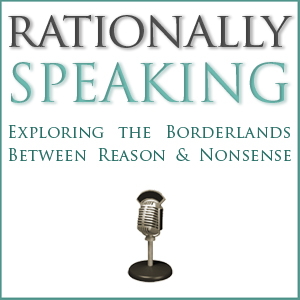Rationally Speaking #184 - Gregory Clark on "What caused the industrial revolution?"
Rationally Speaking Podcast
New York City Skeptics
4.6 • 787 Ratings
🗓️ 14 May 2017
⏱️ 66 minutes
🧾️ Download transcript
Summary
Transcript
Click on a timestamp to play from that location
| 0:00.0 | Today's episode of Rationally Speaking is sponsored by Givewell, a nonprofit dedicated to finding outstanding charities and publishing their full analysis to help donors decide where to give. |
| 0:09.2 | They do rigorous research to quantify how much good a given charity does, how many lives does it save, or how much does it reduce poverty per dollar donated. |
| 0:17.4 | You can read all about their research or just check out their short list of top recommended evidence-based charities to maximize the amount of good that your donations can do. It's free and available to everyone online. Check them out at give well.org. I also want to let you all know about this year's Northeast Conference on Science and Skepticism, being held in New City, June 29th through July 2nd. |
| 0:38.3 | I'll be there taping a live podcast, and there will be lots of other great guests, including |
| 0:42.4 | the skeptics guide to the universe, my former co-host, Massimo Piliucci, the amazing James |
| 0:47.4 | Randy, and keynote speaker Mike Massimino, former NASA astronaut. |
| 0:51.9 | Get your tickets at nexus.org, n-E-C-S-S-S-org. |
| 1:09.0 | Welcome to Rationally-S-S-S-W. Welcome to Rationally Speaking, the podcast where we explore the borderlands between reason and nonsense. |
| 1:15.5 | I'm your host, Julia Gaelith, and it's my pleasure to introduce today's guest, Professor Gregory Clark. |
| 1:21.5 | Gregory is a economic historian at the University of California Davis, and the author of the excellent book, A Farewell |
| 1:28.9 | to Alms, a brief economic history of the world, along with other books. But I think he's most known, |
| 1:35.7 | at least among my circles for a farewell to Alms. I reached out to Gregory because I've recently |
| 1:41.8 | become obsessed with this mystery of why the industrial revolution |
| 1:46.3 | occurred in the time and place that it did, namely England in the late 18th century. |
| 1:52.4 | I'm not alone in this obsession. This question is one of the big holy grails of economic history |
| 1:58.2 | in large part because the Industrial Revolution was just so uniquely |
| 2:02.3 | transformative. For all of the major events that a lot of historians, ink, has been spilled |
| 2:09.5 | over, like the fall of the Roman Empire or the Black Death, et cetera, none of them really had |
| 2:15.0 | much impact on these sort of big long run trends in measures of |
| 2:20.7 | human well-being like health and wealth except for the industrial revolution. So it's the only |
| 2:26.0 | sort of major and lasting change to what it's like to be a human and on earth. |
| 2:38.7 | So this is what Greg is one of the leading scholars on this topic and has also written some very nice overviews of the different theories |
... |
Please login to see the full transcript.
Disclaimer: The podcast and artwork embedded on this page are from New York City Skeptics, and are the property of its owner and not affiliated with or endorsed by Tapesearch.
Generated transcripts are the property of New York City Skeptics and are distributed freely under the Fair Use doctrine. Transcripts generated by Tapesearch are not guaranteed to be accurate.
Copyright © Tapesearch 2025.

